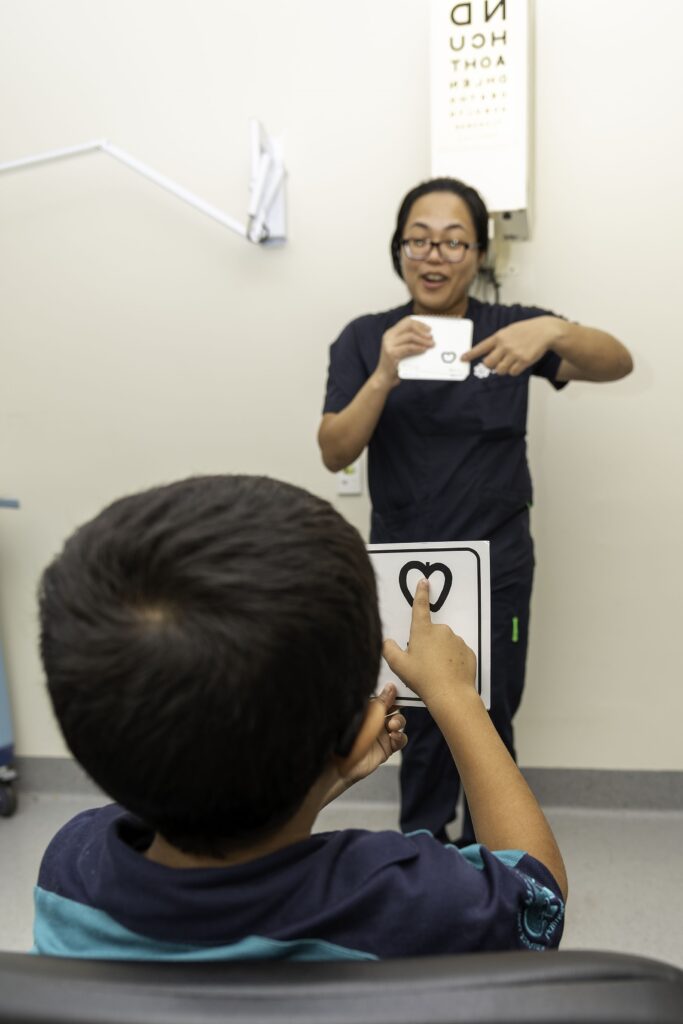Led by Dr Nishantha Wijesinghe, Royal Darwin Hospital – AUD$50,000
Project location: Northern Territory, Australia
In the Northern Territory (NT), there is a significant unmet clinical need: the lack of a children’s vision screening program. Unlike other states and territories in Australia, the NT remains without a structured program to detect early signs of vision problems in young children. The Top End Preschool Vision Screening Pilot Project is designed to fill this crucial gap by establishing a pioneering program aimed at the early detection of undiagnosed eye disorders, such as refractive errors and amblyopia, in preschool-aged children across Darwin and its surrounding regions.
This initiative will be carried out within the Top End Health Service, an area marked by a higher proportion of Indigenous Australians and migrant populations, along with lower average family income and education levels compared to the national average. These factors contribute to a greater risk of undiagnosed and untreated eye conditions among children. The pilot project aims to bring these issues to light, offering the potential for earlier diagnosis and management of eye conditions, ultimately leading to better visual outcomes for these children.

The project also represents an important step in building local capacity by partnering with the Aboriginal-owned Deadly Vision Centre. By collaborating with Aboriginal Health Workers, Indigenous Allied Health Australia trainees, and orthoptists, the project will conduct screenings focused on children aged 4-6 years. A key component of this effort is equipping Aboriginal Health Workers with essential vision screening skills, empowering them to play a vital role in the ongoing care and wellbeing of their communities.
The ultimate goal of the Top End Preschool Vision Screening Pilot Project is to demonstrate the necessity and effectiveness of a permanent vision screening program in the NT. Through this pilot, we aim to provide compelling evidence of the existing gap in care and advocate for the implementation of a long-term, territory-wide vision screening program that ensures all children have the opportunity for a healthy visual future.
ANZEF is the philanthropic arm of the Royal Australian and New Zealand College of Ophthalmologists (RANZCO).
RANZCO is a registered charity with the Australian Charities and Not-for-profits Commission (ACNC) Charities Services in New Zealand (registration no: CC53935).
Charity donations to ANZEF of $2 or more in Australia and $5 or more in New Zealand are tax-deductible.
ANZEF acknowledges and pays respect to the Traditional Owners of the lands and waters throughout the world, and to their Elders and ancestors, past and present.
© 2022 Web design and development by Marketing Media